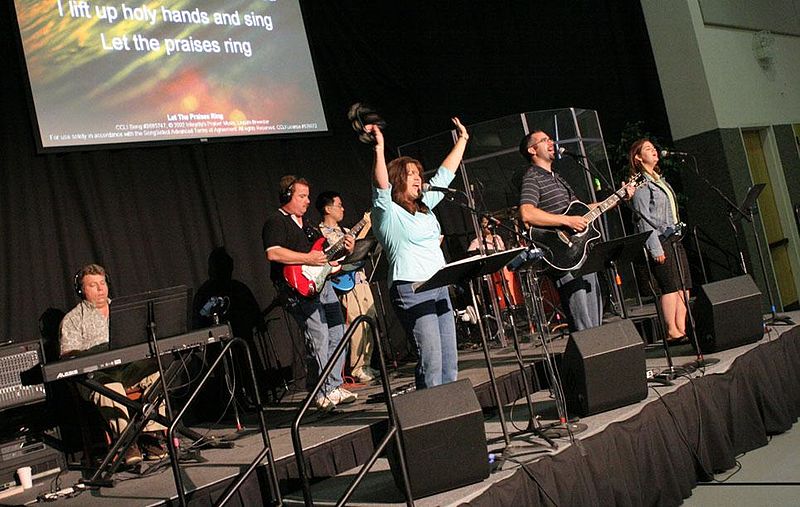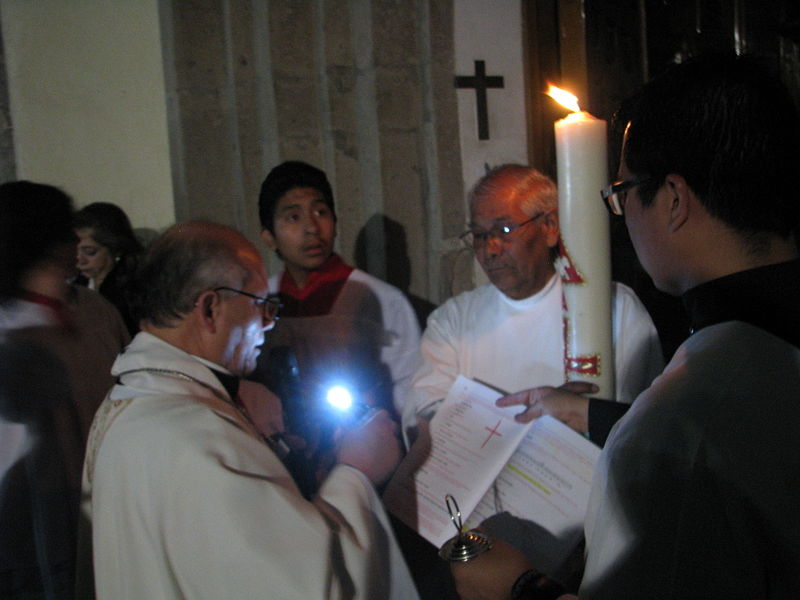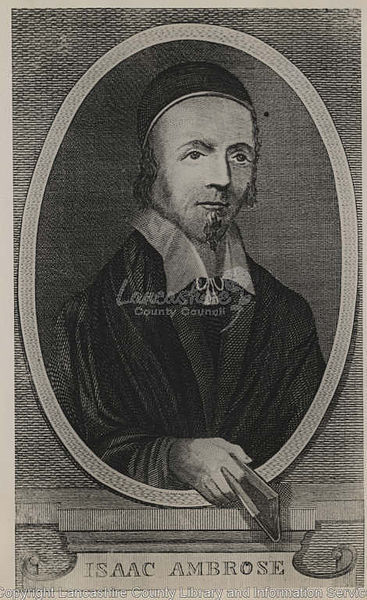(前編を読む)
もう少し公平に考えてみよう。私たちがそのような賛美の中でしばしば求めているのは、「親密に」、「個人的に」、そして「すぐに」神を知ることだ。この点においては私たちも、神を追いもとめる詩編の作者と非常に似通ったところがある。しかし、私たちが求めているものを手に入れれば、それが想像以上に複雑で逆説的なものであることに目を向けるべきだろう。近年、多くの教会が古典的な賛美歌を自分たちの礼拝に溶け込ませようとしているのは一つの良い兆候だ。古典的な賛美は、神の十全さと複雑さを物語っている。
[toggle]But let me be fair. What we’re often asking for in such praise songs is to know God intimately, personally, and immediately. In this regard, we are very much in tune with the psalmist, who pants after God. We are wise to note, however, that if we get what we ask for, it’s going to be more complex and paradoxical than we can imagine. That’s why it’s another good sign that more and more churches are trying to integrate classic hymns into their offerings, as these do speak to God’s fullness and complexity. [/toggle]
(写真:David Ball)
私たちが礼拝をどのように形作るかは、もう一つの人間関係の誘惑を示している。たとえば私たちの礼拝はしばしば、ロック・コンサートと深夜のコメディー番組という二つの文化的アイコンをモデルにして構成される(私が説教について書く時は後者が多い)。多くの福音派教会は、ギター、ベース、電子ピアノ、ドラム、ワーシップ・リーダーといったよくあるかたちのバンドを持ち、彼らが最初に演奏を行う。 「いや、彼らは賛美をリードしているのであって、演奏しているのではありません」と反対する人もいるだろう。しかし、私たちはきちんと真実に向き合うべきだ。舞台上のすべてにはパフォーマンスの要素がある。もちろん、彼らは私たちの礼拝をリードしているが、音楽があまりにも大きくて隣の人の声が聞こえないような礼拝に行ったことは、誰しも一度はあるはずだ。礼拝をリードする人々が自らの自己主張を抑えようと努力していても、現代的な礼拝の雰囲気のせいで、会衆が彼ら彼女らをロック・スターのように見ることはほぼ避けられない。それが賛美のロック・スターだとしても。
[toggle]How we actually shape our services points to another horizontal temptation. For example, we have more or less structured worship around two cultural icons: the rock concert and late-night comedy (more of the latter when I write about preaching). On the one hand, many evangelicals churches have a typical band—guitars, bass, electric piano, and drums, along with singers—performing up front. “No, they are leading worship, not performing,” we object. But let’s face it, there is a performative element in everything on the stage. Yes, they intend to lead us in worship, but we’ve all been to services where the music is so loud that we cannot hear the person next to us singing. As much as worship leaders strive to keep their egos in check, they are the first to admit that the very ambiance of contemporary worship makes it nearly impossible for people to not think of them as rock stars—of worship, yes, but rock stars nonetheless. [/toggle]より古典的で典礼的な礼拝を守ってきた教会でさえ、ロック・コンサート・スタイルの魅力に抗(あらが)うことは難しい。私がよく知っているある英国国教会は、礼拝堂を改修する際、ドラム・セットを他のミュージシャンがいる脇ではなく、舞台の中央を飾る大きな十字架のすぐ右側に置いた。象徴の重要性やその助けを得ながら私たちが礼拝をし、神をあがめ、その存在の中に引き寄せてもらうことを知っている伝統的な場所で、その光景は衝撃的だ。礼拝が進む中で、人々の目はどこに向かうだろう。静かに佇(たたず)む十字架か、それとも音楽のビートを保ちながらリズミカルに動くドラマーだろうか。それを見た者は自問するだろう。「十字架の下でドラマーは何をしているのか」と。控えめに言って、その衝撃的な象徴性は見る者の気を散らすものだ。
[toggle]Even churches committed to the more classical, liturgical worship find the temptation to imitate a rock concert irresistible. One Anglican church I’m familiar with, when remodeling a building to worship in, planted the drum set not off to the side with the other musicians but right of the large cross that adorns the center of the stage. In a tradition that grasps the importance of symbols and how they can help us worship, adore God, and draw us into his presence, the imagery is shocking. As worship is moving along, where do we think people’s eyes are going to focus: On a cross that stands still or on the drummer who is keeping the beat and moving rhythmically with the music? One keeps asking oneself, “What is a drummer doing at the foot of the cross?” The clashing symbolism is distracting to say the least. [/toggle]断っておくが、この教会は、失われ傷つけられた人々にキリストの名において手を差し伸べている、地域で最も効果的な教会の一つだ。しかしそれは、神との関係と人間関係を取り違えるメッセージを、自分たちや教会を訪れる人たちに与えてしまっている一つの例でもある。
[toggle]To be clear, this is one of the most effective churches in the community for reaching out to the lost and hurting in the name of Christ. Yet it is an example of how confused we are about the relationship between the horizontal and the vertical—and the confusing messages we end up sending to ourselves and to those who visit our churches. [/toggle]別の方法でフェアに検証しよう。ここで言いたいのは、伝統的な典礼を持つ教会が何か利点を持っているという話ではない。私は長老派や聖公会の教会に長年通ってきたが、誰かが礼拝の後に典礼上の行動や言葉について苦言を呈したり、「あの侍者(ミサで司祭を助ける奉仕者)はもっと訓練が必要だ」などのかたちで司祭に伝えたりすることは珍しいことではない。
[toggle]Let me be fair in another way: It isn’t as if traditional, liturgical churches have any advantage here. Having been a long-standing member of Episcopal and Anglican churches, I can assure you that it’s not unusual for a post-worship conversation to concern itself with whether some liturgical action or word was done properly, followed by a word to the priest that such-and-such acolyte needs more training. [/toggle]
(写真:Isaac1992)
もう一つ極端な例を挙げる。それはイースターの火をともす方法について。復活徹夜祭の始まりに教会の入り口で復活のろうそく(キリストの復活を象徴する大きな白いろうそく)に小さな火がともされた。声を上げたのは、ふだんは愛情深く心優しい役員だった。暫定的に着任していた司祭がその復活のろうそくに大きなライターで火を点けると、その役員はそれが神への冒涜であるかのごとく怒ったのだ。そう、人間関係に気を取られる誘惑は典礼的な教会も同じなのだ。
[toggle]Or take one extreme example—how to light the Easter fire. This is a small fire kindled at the entrance of the church as a prelude to the Easter vigil, from which the paschal candle is lit (a large white candle symbolizing, among other things, Christ’s resurrection). I remember one otherwise loving and compassionate deacon who was distressed when an interim priest lit the Easter fire with a Bic lighter—as if doing so was a sacrilege. So yes, a focus on the horizontal can tempt the liturgical as well. [/toggle]神をあがめることに新たな視点を持つ私たちでさえ、神との関係よりも人間関係に気を取られている日が多いのではないか。誰かが「伝統的な神の国の描写は、長ったらしい礼拝のように退屈でしょうがない」と言うのを私たちは何度聞いただろうか。それは、私たちが礼拝や賛美についてどう思っているかを示している。ピューリタンの神学者、アイザック・アンブローズはこのように述べている。「これが気に入らなければ、いったいどのようにして神の国に住むのだろうか。神の国をもっと魅力的なものにしたいと思う人は、『この世界で私が好きなこと──木工、アート、ガーデニング、お菓子を焼くことでさえ、死後のいのちでは素晴らしい趣味となる』と言ってみたり、愛する人たちとの再会を待ちわびたりする」
[toggle]Despite the renewed focus on adoration, I suspect that we’re still more interested in the horizontal than the vertical many days. How many times have we heard someone say the traditional picture of heaven sounds pretty boring, like one, long worship service? That says something about what we think of our worship services and what we think of worship. As Puritan theologian Isaac Ambrose put it, “Consider that looking unto Jesus is the work of heaven. … If then we like not this work, how will we live in heaven?” Instead, when we want to make the kingdom of heaven sound more attractive, we talk about it like this: “Whatever you enjoy doing in this life—athletics, woodworking, art, gardening, baking, etc.—will be extraordinary in the life to come.” Or we look forward to a glad reunion with loved ones. [/toggle]
アイザック・アンブローズ(Contemporary portrait)
こういったことは確かに、後にやって来る素晴らしい世界の一部だ。しかし、問題を持っているのは私たちの心なのだ。私たちが「真実であり、善であり、そして美である永遠の神」を永遠に賛美しながら時を過ごすこと(黙示録22:3参照)より、趣味や愛する人たちとの再会のほうを嬉しく思うことを認めない者はいないだろう。
[toggle]Those sorts of things are indeed part of the glorious age to come. What signals a problem is our hearts. Who of us doesn’t admit that it’s the activities and the reunion with loved ones that gets us more excited than spending eternity glorifying the True, the Good, and the Beautiful One (Rev. 22:3)? [/toggle]そして、私たちは何度も何度も繰り返し聞いたり言ったりする。「何も霊的な養いを受けなかった」、「礼拝から何も得るものはなかった」、あるいは「神の臨在を感じることができなかった」と。あるいは、私たちが教会に来たのは、神を賛美するためではなく、何かしらの宗教的経験を得るためだといった意味合いの、ありとあらゆる小言を言ったり聞いたりする。
[toggle]And then there are the repeated refrains we’ve heard and all said at one time or another: “I’m not being fed.” Or “I didn’t get anything out of the service.” Or “I didn’t feel God was present.” Or a hundred other phrases that tip us off that we came to church not to glorify God but to have a certain religious experience. [/toggle]私たちがどのように礼拝をするかについて再考するにはまず、神が神であるがゆえのあらゆる複雑さ(私たちが神にどうあってほしいのかではなく)に終始焦点を当て続けることだ。つまりそれは、私たちがどう感じるか、あるいは礼拝が何を感じさせてくれるかにかかわらず、神に献げ物をするために礼拝に向かうということだ。ほかのことに気を取られずにこれを行うための知恵については、経験豊富な賛美リーダーたちがきっと素晴らしいアイデアを持っていることだろう。彼らは毎週、ワーシップとエンターテイメント、神に栄光をささげることと賛美リードの意識のバランスを取ろうと奮闘している。彼らはその難しさをよく分かっている。私たちが行っている現代的な礼拝が私たちの手で作り込まれたものだという事実を踏まえ、その緊張関係は継続的に存在し続けるものなのだという事実から逃げないことが、私たちが取るべき最初の一歩であると思う。
[toggle]Rethinking how we do worship begins, then, with keeping the focus on God as he is in all his complexity (not how we want him to be) from beginning to end. It means entering worship looking first and foremost to offer something to God, no matter how we feel or how the service makes us feel. How to do this without getting distracted—well, experienced worship leaders will have the best ideas about that; they negotiate the worship/entertainment, glorifying God/singers tensions every week. They know the challenges. I would think the first step is to recognize that, given how we’ve structured contemporary worship, there is no getting around the fact that this is an ongoing tension. [/toggle]もう一つ大事なことは、礼拝を「私たちが神に語りかけ、神が私たちに語りかける壮大なドラマ、あるいは対話」として見るなら、礼拝で起こるすべてのことは神への賛美であるということを認めることだ。
[toggle]I would think another key is to recognize that everything that happens in a service is in fact worship of God, if we see worship as a great drama or dialogue in which we speak to God and God speaks to us. [/toggle]多くの福音派のクリスチャンは、礼拝の最初の部分で3、4曲賛美するその時間だけを「ワーシップ」と呼ぶという、とんでもない神学的習慣を身につけてしまった。私たちは「説教を聞く前に、しばらくの間、賛美の時を過ごしましょう」などと言ったりする。まるでワーシップは神に関するもので、説教が神に関するものではないかのように。これこそが取り違えの始まりだ。これから聖書や説教についてのエッセイでも考察するように、その礼拝の部分もまた、神を第一とし、究極的な目的とするものだ。伝統的に、賛美、祈り、聖書、説教、献金、祝祷といった礼拝全体を賛美、ワーシップと考えるのはそのためだ。それはすべて神に関わることなのだ。
[toggle]Many evangelicals have gotten into the terrible theological habit of calling only the first part of our services “worship,” that first part in which we sing praises to God in three or four songs. We say things like, “Before we listen to the sermon, let’s spend some time in worship.” As if the singing is about God and the sermon is not about God. This is a confusion of the first order. As we’ll see in the essays on the Bible and on preaching, this part of the service is also supposed to be about God first and foremost. That’s why traditionally, the entire service—singing, prayer, Bible, preaching, offering, and benediction—is considered worship. It’s all about God. [/toggle]これこそ、私たちが認識を改めるべきことの一つだろう。もう一つは、多くの福音派の間で不人気になってしまった聖餐や儀式と関係がある。これについては来週のエッセイの主題にすることにしよう。
[toggle]So that’s one perception we might change. Another has to do with the sacraments/ordinances, which have fallen into disrepute in many evangelical circles. That will be the subject of next week’s essay. [/toggle]執筆者のマーク・ガリは「クリスチャニティー・トゥデイ」の編集長。
本記事は「クリスチャニティー・トゥデイ」(米国)より翻訳、転載しました。翻訳にあたって、多少の省略をしています。
出典URL:https://www.christianitytoday.com/ct/2019/july-web-only/temptations-of-evangelical-worship.html
